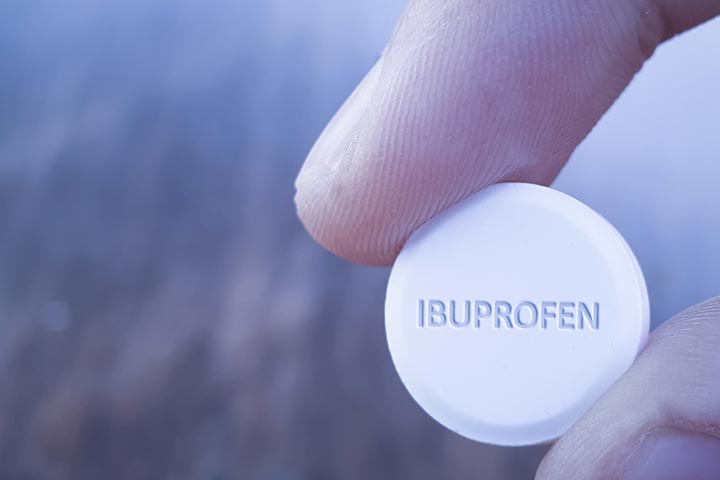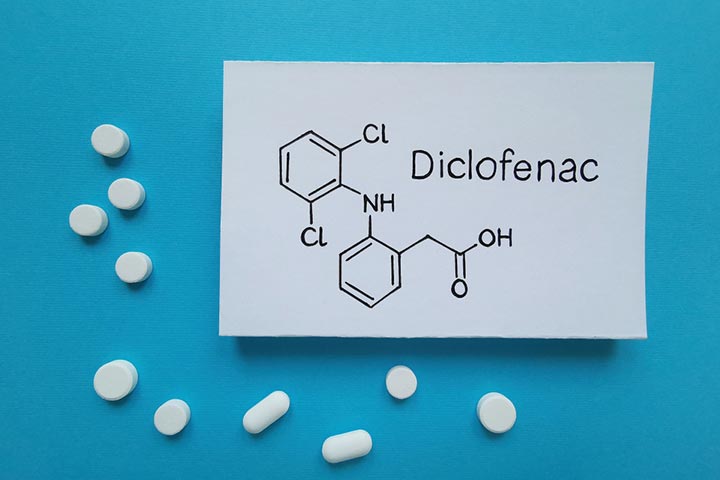Most women are apprehensive about using medications like painkillers while breastfeeding. If you are a first-time mom, you might relate to this feeling. Maternal health is a crucial aspect of post-childbirth care. After childbirth, a woman’s body undergoes several bodily changes, and you may experience some discomfort while recovering from the process. Although you choose to provide the best nourishment for your baby by breastfeeding them, it may lead to tricky situations when you are unwell. While most women try natural ways and remedies and avoid taking medications while breastfeeding, in some cases, your doctor may advise you to take a painkiller to alleviate the pain and discomfort. But are painkillers safe while breastfeeding? Will they cause any side effects to the infant? Keep reading to find answers to these questions and more important details on taking painkillers.
Do Medicines Actually Pass Into The Breast Milk?
Any medicine or drug that is present in your blood stream will pass into your breast milk. This will be to some extent and the level of medication in the breast milk is marginal. However, there are certain drugs that tend to accumulate in the breast milk. Therefore it is extremely important that you know which drugs are suitable to consume while breast feeding (1).
What Can I Do If I Absolutely Need To Take A Painkiller?
Of course there may be situations when you absolutely need to take a painkiller when breastfeeding (2).
- Your doctor will be the best guide in this matter. You need to ensure your doctor is aware that you are breastfeeding your baby. This information will help your doctor in writing a prescription that is safe and tailored to you.
- In case you are taking painkillers while breastfeeding, ensure you feed your baby just before taking the medication. This will help reduce your baby’s exposure to that particular drug.
- Whatever medicine you take should only be prescribed by your doctor. Under no circumstance is it okay to take over-the-counter drugs.
What Painkillers Can You Take When Breastfeeding?
There are two painkillers that are considered safe while breastfeeding. According to the American Academy of Paediatrics, the following two pain killers are considered safe to be consumed while breastfeeding (3):
1. Ibuprofen:
This is used to treat a number of ailments and to combat pain. It is considered safer while breastfeeding due to its low amounts measured in breast milk.
2. Acetaminophen:
It is one of the most commonly used analgesics , and is taken on its own or is found as part of cold or flu medications. The American Academy of Paediatrics and the World Health Organisation Working Group on Drugs and Human Lactation have found it to be safe if consumed while breast feeding. It is sold under the brand names like Tylenol and Panadol.
What Are The Medicines That Are Okay To Be Taken While Breastfeeding?
As recommended by most doctors, it is always better to try and avoid situations that require you to consume a painkiller. If you are aware of something triggering a reaction, try and avoid it as much as possible.
However, if you absolutely must, here are a few drugs that are considered okay to take if prescribed by your doctor (4). Do remember that different countries and states within them have different predefined restrictions on medicines. Hence, exercise caution and ensure these medicines are considered safe in your area. Your doctor will be able to direct you accordingly:
- Paracetamol – is considered safe if prescribed by your doctor. Brand names may include Panadol, Dymadon and Panamx.
- Creams and sprays that are used for muscular pain relief.
- Ibuprofen – only in low doses.
- Codeine – low doses, in conjunction with acetaminophen
- Diclofenac – only in low doses.
- Imidazole nasal spray decongestants like Sinex and Otrivin.
- Medications containing loratadine such as Claratyne.
- Nasal sprays like budesonide found in Rhinocort.
- Nasal sprays like beclomethasone found in Aldecin and Beconase.
What Are The Medicines That Should Be Completely Avoided While Breastfeeding?
Make sure you avoid the following completely while you are breast feeding (5):
- Mefenamic acid – can be found in Ponstan.
- Indomethacin – example is Indocin.
- Tablets containing pseudoephedrine such as Sudafed.
- Tablets containing phenylephrine such as Demazin.
- Gargles containing povidone-iodine such as Betadine and Viodine.
Paracetamol and ibuprofen are the safest painkillers when breastfeeding. However, you may seek doctors’ prescriptions for the right dosage and take the medication according to the breastfeeding schedule, while keeping in mind your infant’s safety. During lactation, most medications can pass to breast milk and reach the baby. Keeping the medication levels at lower levels is important since the baby’s developing immune system may not process them and result in toxicities. Adjusting the dosage and timings could help reduce the availability of medications in breast milk. Also, postpartum moms should avoid self-treatments with OTC medications to avoid bad effects on babies.
Key Pointers
- Painkillers can be passed from the mother to the baby through breast milk.
- Consult a doctor before taking any painkiller while breastfeeding.
- Avoid mefenamic acid, indomethacin, pseudoephedrine, phenylephrine, and povidone-iodine as they can pass into breast milk from the mother’s blood.
- Low doses of ibuprofen, acetaminophen, paracetamol, loratadine, and diclofenac are safe for breastfeeding mothers, as only minor amounts are found in breast milk.
- Breastfeeding mothers may safely use muscular pain relief sprays and creams, imidazole nasal decongestants, budesonide, and beclomethasone nasal sprays.














